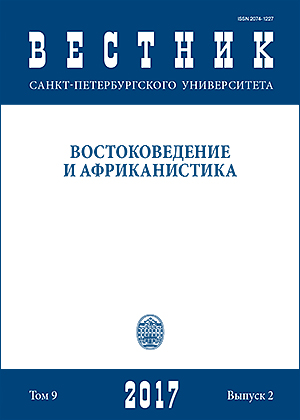Language Autostereotypes and Heterostereotypes in Turkish
DOI:
https://doi.org/10.21638/11701/spbu13.2017.201Abstract
The article defines the ‘linguistic ethnic stereotype’ category in relation to the Turkish language, discusses its 2 types, namely, language auto and heterostereotypes based on the example of fixed expressions, clichés and idiomatic units. Ethnic stereotypes may provide a useful social psychological
perspective in which to consider intergroup relations between national groups. The present study aims to contribute to the ethnic psycholinguistic research of Turkish language as well as to fill in the gap that exists in this underesearched field. The purpose of this study is to investigate the links between language auto and heterostereotypes of modern Turkish language and the state of ethnic relations within Turkish society: their perceptions of members of various nationalities inhabiting multi‐ethnic and multi‐religious Turkey. A more narrow aim is to provide a pilot description and explanation to the given formulaic sentences.
Limited research on language issues is also reviewed, 61 formulas have been analyzed and our findings indicate that auto-stereotypes are generally more positive than hetero-stereotypes. This paper focuses on Turkish foreign language teachers’ perceptions of culture teaching. The context in which cross-cultural contacts took place seemed to be an important variable.
The results and the methodology may be useful to multinational corporations in identifying sources of potential conflict and misunderstanding between different cultural groups working together.
Keywords:
linguistic stereotype, the Turkish language, the Turkish idiom, the Turkish cliches, Turkish phraseology, Turkic linguistics, Turkic languages
Downloads
References
References
Downloads
Published
How to Cite
Issue
Section
License
Articles of "Vestnik of Saint Petersburg University. Asian and African Studies" are open access distributed under the terms of the License Agreement with Saint Petersburg State University, which permits to the authors unrestricted distribution and self-archiving free of charge.





